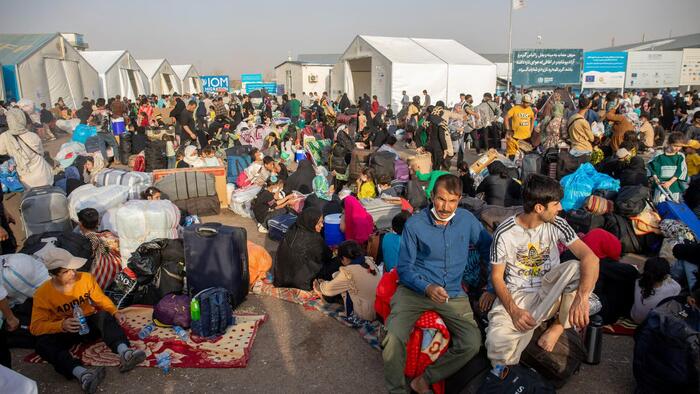


It would seem that mass deportations in the name of national security is not an issue limited to western countries. Over the past few weeks Iran has drawn the attention of the UN and a number of humanitarian NGOs after initiated a nationwide program to remove all Afghan migrants without proper legal documentation from their borders, relocating them back to Afghanistan.
Nearly 1 million migrants have been deported in the past month alone according to estimates by Iranian Interior Minister Eskandar Momeni. That's around half of the 2 million Afghans currently residing in the country. Iran’s government spokeswoman Fatemeh Mohajerani stated at the beginning of the relocation effort:
“We’ve always striven to be good hosts, but national security is a priority.”
The deportations are a response to detrimental intelligence leaks and acts of sabotage within Iran during recent conflict with Israel. Iranian authorities report the capture of a number of Afghan refugees involved in the transportation and piloting of drones, the gathering of sensitive intelligence and the planting of bombs. They assert that migrants are easier for the Israelis to bribe.
In a well-publicized case, Iranian authorities in the city of Rey arrested an Afghan university student accusing him of links to the Mossad and alleging he was caught in possession of sensitive material on bomb-making, drone mechanics and surveillance operations.
State television aired reports of arrested Afghan citizens “confessing” to being Israeli agents. In one such report, broadcast on June 26, showed the questioning of several suspects, mostly Afghans, being accused of plotting to bomb a power station in southeast Tehran.
It is possible that the mass deportations represent nothing more than an effort to divert blame for Iranian intelligence failures onto a convenient scapegoat. However, migrant groups have historically been easy targets for manipulation and conversion by foreign enemies and Iran's caution is a logical response. Open borders have long been used by intelligence agencies as a means to plant "sleeper agents" within nations they plan to go to war with.
For example, several Iranians have been recently apprehended trying to sneak across the US border, some of them with national security ties.
The Taliban government has urged Iran to stop the exodus, calling for a gradual process instead. Taliban officials say the dignity of the migrants must be respected, though, it is likely that the Afghan economy could be crippled by a surge of a million or more refugees in such a short span of time and the Taliban have limited means of humanitarian support.
Afghanistan maintains a number of restrictions on foreign aid groups seeking to operate within the country. The UN has also accused the Taliban of "serious abuses" against returning migrants, including cases of torture, mistreatment and arbitrary arrest and detention targeting women, media workers, civil society members as well as individuals affiliated with the former government that fell in 2021.
While education of women is common in Iran, it is strictly prohibited in Afghanistan under the Taliban. Women refugees returning to the country after years or decades in Iran are likely to experience a cultural shock.
Iran's deportations have been escalating since 2023, with the government citing not just national security issues, but also economic strain. As with any other country, it is not their responsibility to take on the economic, cultural and strategic risks associated with mass immigration.
